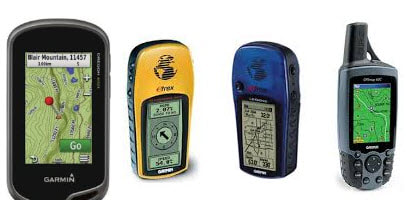The background of this area should be an image. Please use Change Background feature to change the background of this area.
(Can be found under DESIGN tab)
Hiking Las Vegas Blog
|
All hikers, especially those who love to travel deep into the woods, face the possibility of getting lost. So, what effective solutions can you employ? You can use a GPS that can provide you the information regarding your location while hiking, which would help you feel safe. There are other tools you can use, such as a rangefinder. Some important factors in choosing a GPS include the unit’s display quality so you can read the GPS under bright light or dark skies. If you like to store waypoints in your GPS, you might want to buy a GPS with a larger memory capacity. Furthermore, you can choose a GPS which is lightweight and waterproof if you know that you are more adventurous and would likely encounter bad weather. After choosing a GPS, here are some ways how you can keep yourself safe when hiking! Using the Distress Signals A GPS usually does not send any information because it is just a radio signal receiver with a logic chip that translates timing signals into Lat-Lon positions. Therefore, unless you buy a GPS that can attach to a cell phone or other transmission devices such as the ACR ResQ Personal Locator Beacons, you would not be able to send out distress signals. There are two kinds of transmitters which you can buy, the personal locator beacons and satellite messengers. Personal locator beacons give out distress signals by utilizing the Distress Alerting Satellite System (DASS). This method can only be used in emergency situations. Usually, we would use the satellite messengers when we are met with dangers. For example, there might be situations where we our hurt and we know that we need help. Satellite messengers can be purchased and used with your GPS to ensure help can be notified if needed. Always Plan Your Hike This is important because scouting would give you the information you need which is useful in emergency situations. By scouting properly with a quality pair of binoculars is also a great idea, a compact & lightweight pair is recommended. you would be able to understand the terrain you will encounter. Use internet resources such as Google Maps to look at topography or aerial views. This would give you a good idea about the landscape you will hike, and you can plan your hike more effectively. You can mark down locations which interests you using waypoints. These waypoints can be transferred to your GPS. When you hike, those waypoints can be used as your reference and the chances of you getting loss would be significantly reduced. Utilizing Different Navigation Methods You can explore different navigation methods that are available in your GPS and choose the one that is most comfortable to you. This is important because effectively using your GPS can keep you on your route and lower the probability of getting loss. Different navigational methods include navigating by touching 3D locations on your screen or you can follow Point of Interests which you have previously set. If you are not familiar with which navigational method is best for you, experiment! If you get lost, it would be much easier to get back to your route if you use your GPS correctly. Have a Contingency Plan When Traveling A GPS can help you to make important decisions concerning which back-up plan you should use. Psychologically, a GPS can help keep you calm whenever you feel lost, which would aid you in making clear-headed decisions on how to get back on route. Also, a GPS assists you by informing you of your position, the orientation you are heading and by providing feedback on whether you are travelling to your intended destination. All of this information is imperative because missing any of them could mean that you are travelling the wrong way. Your coordinates, which is the latitude and longitude, can help you communicate where you are to your friends as well! You might want to seek help from them if they are familiar with your location. Conclusion Learning how to use a GPS can go a long way in keeping yourself safe. Remember that your GPS is only useful if it works. It must be able to get satellite reception and you need to have backup batteries. You should also consider data sharing and how convenient is it to share data with the GPS unit you are using.
With these tips you can reduce your chance of getting lost, and if you do get lost, you can make informed decisions. This will make sure that you are not the next hiker who gets lost and calls Search and Rescue. If you have any other tips on how to use your GPS, feel free to share below! Author Bio: I am John Lewis, a blogger, survivalist and outdoor enthusiast. You can follow me at Epic Wilderness. |
AuthorBranch Whitney is the author of Hiking Las Vegas and creator of the 52 Peak Club where members hike to the best 52 Peaks around Las Vegas, NV Archives
October 2023
Categories |


 RSS Feed
RSS Feed